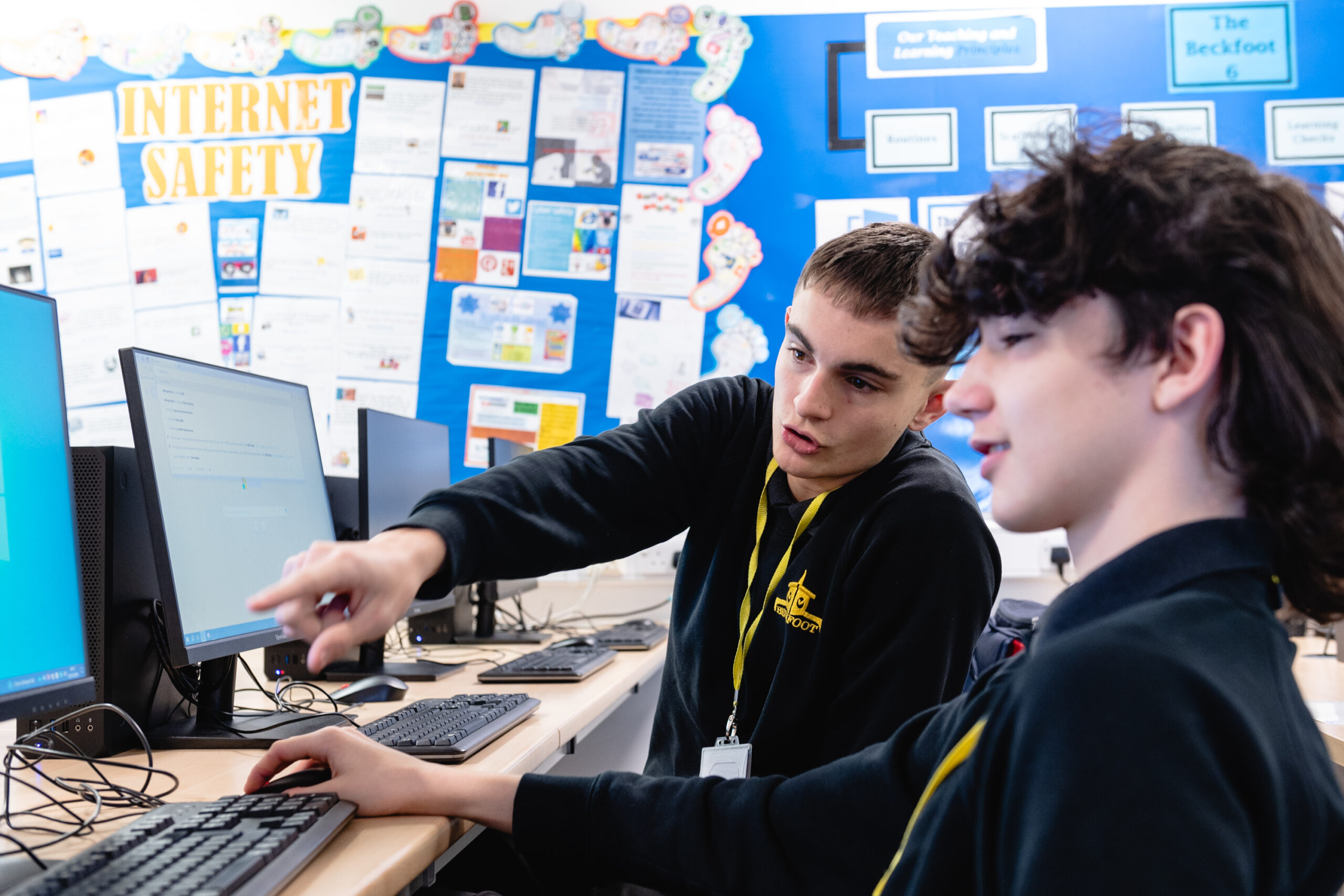Computer Science will help students to develop the ability to think in a logical way and become better at making decisions and problem solving.

A high quality Computer Science education will ensure all students:
- Are confident, responsible, and creative users of technology
- Can analyse problems in computational thinking terms and have practical experience of writing computer programs
- Are prepared for the future giving them opportunities to gain knowledge and develop skills for the ever changing digital world
- Have a sense of enjoyment and curiosity about Computer Science.
Enrichment
In Computer Science and ICT we enrich our students through the Bebras and TSOCC Computational Thinking problems, stretch and challenge and further reading materials.
Our students will be able to stay safe while exploring the world wide web and be able to share best practices with their wider community and peers.
Assessment
In years 7, 8 and 9, internal assessments will take place throughout each year to monitor student progress and further inform teaching and learning.
At GCSE, you will be assessed by two exams, with mocks and assessments throughout the year to assess your progress.
KS4 Specification
Careers
Our Computer Science and ICT curriculum develops a range of employable skills, analysis and evaluation, algorithmic thinking, problem solving and logical reasoning. We often discuss potential pathways with our students in lessons.
- Website Developer
- Games Designer
- IT Consultant
- Project Manager
- Customer Support
Curriculum Overview
| Year | Cycle 1 | Cycle 2 | Cycle 3 |
|---|---|---|---|
| Year 7 | Internet Safety: Students will learn how to collect and use digital images using appropriate software, they will explore responsible online behaviour, including understanding what is right and wrong when using technology and online services | Algorithms thinking: Students will develop their problem-solving skills by learning how to design and analyse algorithms, they will explore how algorithms are sequences of steps used to complete tasks and how they differ from computer programs | Small basic programming: Students will understand how to control movement using commands and explore key computational thinking concepts such as sequencing, repetition and user input |
| Year 8 | Data Representation: Students will explore how data is stored and represented digitally Small basic programming: Students will learn fundamental programming concepts using small basic, developing problem-solving and logical thinking skills | Computer Hardware: Students will explore the key components of computer hardware, understand how data is processed, and learn about the various types of storage devices | Logic Gates: Students will focus on understanding the principles of logic gates and how they are used to form digital circuits |
| Year 9 | Cyber Security: Students will learn about the importance of cyber security, the threats faced by digital systems, and how to protect data and systems from cyberattacks | Python Programming using Thonny: Students will be introduced to Python programming, focusing on writing simple programs using variables and performing calculations | Computer networks: Students will explore the different types of computer networks, their components, and how data is transmitted between devices |
| Year 10 | Fundamentals of Algorithms: Students will learn how algorithms are used to solve problems and how they can be represented Fundamentals of Programming: Students will learn core programming principles including data types, operations, file handling, and string processing | Fundamentals of Programming: Students will explore data structures, Boolean logic and random number generation Data Representation: Students will learn about how data represented in computers | Computer Systems: Students will explore the different components of computer systems including hardware and software |
| Year 11 | Computer networks: Students will learn about computer networks, their types, benefits, risks and the differences between wired and wireless networks Cyber security: Students will learn about cyber security focusing on how to protect systems from malicious attacks | Databases and SQL: Students will learn about relational databases and how they are structured Ethical, legal and environmental issues: Students will learn about the ethical, legal, and environmental issues surrounding the use of technology | Preparation for GCSE exams: Students will confidently be able to answer GCSE exams style questions and understand all content covered over two years. |